Utopia, Limited (1893) is a rare bird, and one that every Gilbert and Sullivan completist simply has to bag. The point of completism, of course, is to acquire an overview: if artists are truly original, everything they created should illuminate the whole. But what if a career tailed off, or ran to seed? It’s just going to be depressing, isn’t it? By the time they began their penultimate opera, Gilbert and Sullivan hadn’t collaborated for three years. In fact, they’d barely spoken. Goaded back into harness, they produced a comedy that really ought to have sparkled and yet somehow… well, put it this way: even the late D’Oyly Carte company waited until 1975 before attempting a revival.
Scottish Opera deserves only praise for this latest resuscitation effort. No dutiful completism here; this was a spirited attempt by a team of skilled professionals to fix a show that’s never really flown. And fair play to them: Bernard Shaw couldn’t praise Utopia, Limitedhighly enough and there are passages – some of them extensive – where both creators are demonstrably on peak form. The premise is vintage Gilbert. The technically despotic but effectively powerless monarch of the island kingdom of Utopia is in love with all things British, which at this specific point in history means that the progressive thing to do is to convert the entire nation into a limited liability company.
For this semi-staging the director Stuart Maunder recycled the tropical backdrops and parquet floor from Scottish Opera’s The Gondoliers. Ben McAteer was King Paramount, a tall, genial presence with a sunny baritone, and together with Charlie Drummond as the Girton-educated Princess Zara he set the musical tone at a consistently high level – Drummond, in particular, rolling out her wine-dark soprano with luxuriant warmth. Something like 30 minutes had been cut from the running time, mostly at Gilbert’s expense, and if the great Yvonne Howard (as an unexpectedly spunky Lady Sophy) made something fresh out of a potentially awkward role, Richard Suart and Arthur Bruce (as a pair of conspiratorial judges) seemed to have drawn the shortest straw, though their odd-couple comic energy suggested that they were having the time of their lives regardless.
As were the audience, at least intermittently. The score is Sullivan at his most mature, elegantly interleaving ensembles, solos and choruses, and lightly brushed with orchestral magic. A bass drum rumbles softly as King Paramount lays down the law, and woodwind zephyrs ruffle the Utopian palms. (The conductor, Derek Clark, has clearly found his inner Savoyard. At times he was positively balletic.) Gilbert takes a bit longer to regain his feet, but by Act Two he’s scatter-gunning satirical couplets at anything from operatic tenors to local government planning regulations. An impossibly catchy patter-song in six-part harmony (complete with choreographed tambourines) is a sudden, delirious flash of G & S at their Mikado-level best.
It’s a bit late, though, and it’s interesting (if melancholy) to consider why, even in a performance as joyous as this, Utopia, Limited sends you out with an appreciative smile, rather than the gleeful, light-as-air buzz that you get after a really smart Pirates or Pinafore. It’s baggy, and Maunder suggests that after their estrangement, neither Gilbert nor Sullivan felt able to criticise the other’s work. The sparky, abrasive creative to-and-fro that had chiselled Iolantheand The Gondoliers to comic-opera perfection had gone for good. I’m glad to have ticked Utopia, Limited off my operetta bucket list, but I don’t think I’ll ever get past the gratuitous appearance in Act One of HMS Pinafore’s Captain Corcoran, complete with catchphrase. What, never? The team that created The Mikado, reduced to fan service. The audience roared, as Gilbert and Sir Arthur knew they would, and something inside me died.
As for Jonas Kaufmann and Diana Damrau’s joint lieder recital at the Barbican, a braver critic might suggest that it didn’t entirely come off either – that Kaufmann can’t quite refine that bronzed wonder-tenor down to the level of concentrated intimacy required for these songs by Schumann and Brahms (Damrau, honey-toned and precise, seemed more comfortable). Still, it was good to see a lieder audience that must have been in four figures, and it would be mean-spirited not to acknowledge the generosity and care with which Kaufmann, Damrau and the pianist Helmut Deutsch had devised their programme: nearly 40 songs in total, arranged as a sort of love story.
The duets were particularly exquisite. Kaufmann’s and Damrau’s voices don’t blend, exactly, but each seems to hold the other in suspension, with all sorts of interesting emotions quivering in the space between. Deutsch, meanwhile, was a lucid, unsentimental foil to the miniature melodramas playing out between the singers. The Barbican provided surtitles (which was helpful) but no printed programmes. There was a downloadable programme, apparently – information of limited usefulness when you’re underground and surrounded by reinforced concrete.
Got something to add? Join the discussion and comment below.
Get 10 issues for just $10
Subscribe to The Spectator Australia today for the next 10 magazine issues, plus full online access, for just $10.
You might disagree with half of it, but you’ll enjoy reading all of it. Try your first month for free, then just $2 a week for the remainder of your first year.

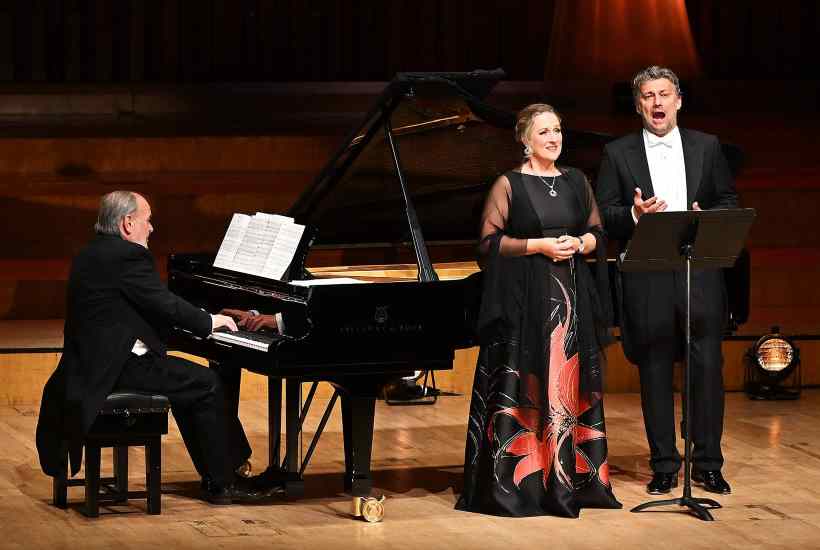
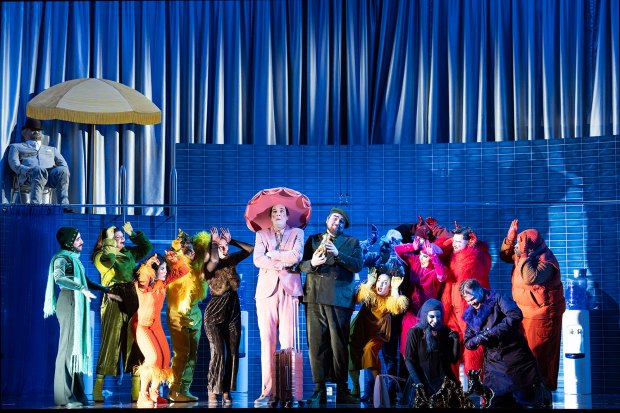
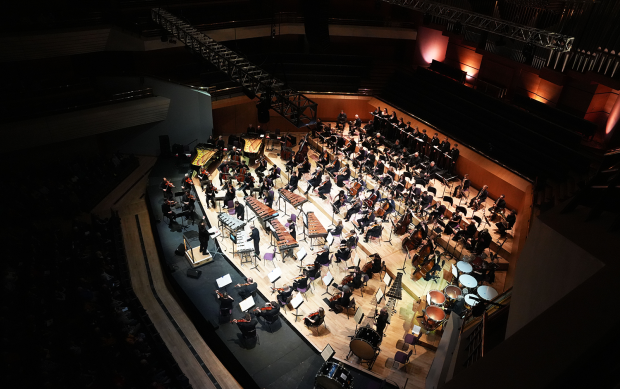
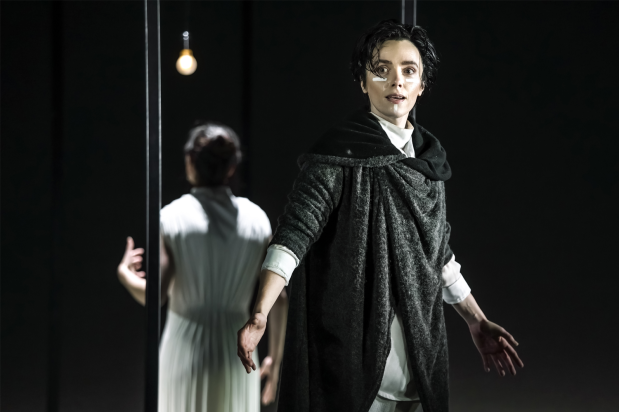
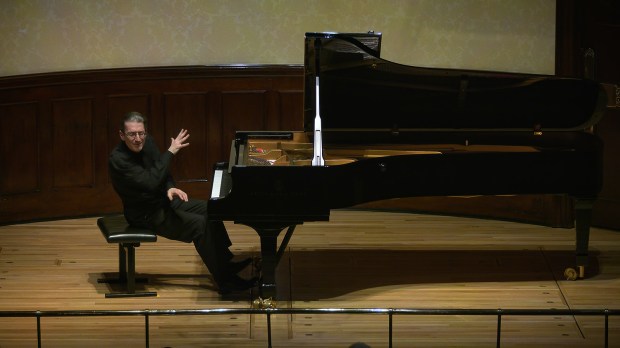
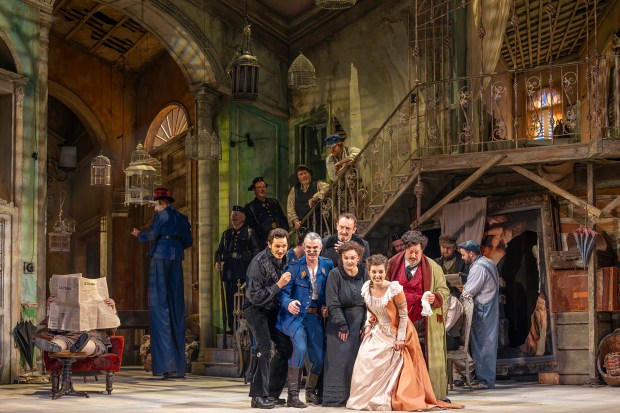
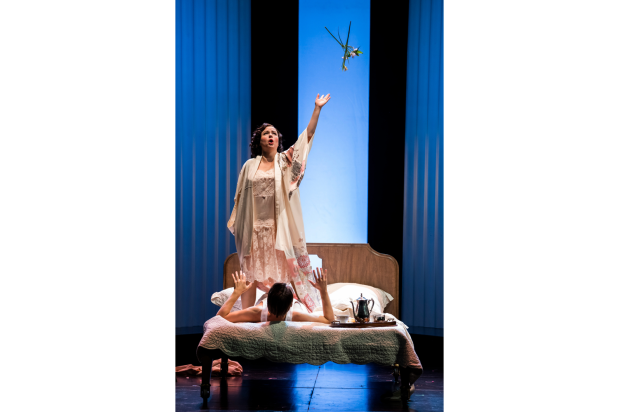






Comments
Don't miss out
Join the conversation with other Spectator Australia readers. Subscribe to leave a comment.
SUBSCRIBEAlready a subscriber? Log in